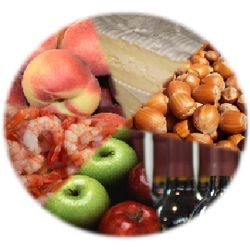Are We Overreacting to the Reactions of Anaphylaxis?

“Anaphylaxis, or anaphylactic shock, is the most serious allergic reaction and can causedeath without prompt medical attention. Within minutes of exposure to the allergen, or ‘trigger’, the person can have potentially life-threatening symptoms such as breathing difficulties.” (Better Health, 2015).
Statistics show that anaphylaxis affects about one in two hundred people, with figures unfortunately on the rise. Common triggers are peanuts, tree nuts, wheat, fish, egg, and milk. An allergic reaction can be triggered when a child comes in contact with the identified food by touching, eating, or inhaling its particles. This is where the risk assessment occurs within the OSHC services.
By eliminating the food/s from the menu at the service, this reduces the chance of a child experiencing an allergic reaction to the food in which we serve. As much as services like to believe they have eliminated all chances of the children having an anaphylactic shock, the chances are still evident. For this reason, educators are required to undertake training.
In the Education and Care Services National Regulations (2015), under regulation 136 (1) “The approved provider of a centre-based service must ensure that at least one educator who has undertaken current approved anaphylaxis management training are in attendance at any place where children are being educated and cared for by the service, and immediately available in an emergency.” Outlined is a real life message from a mother, giving insight of her experience with Anaphylaxis (My Food Allergy Friends, 2016).
"Today I am heart broken. Devastated as a mother having to witness my son having an anaphylactic reaction. Having anaphylaxis and living with food allergies is a great challenge on a daily basis. In fact it has made me develop anxiety!
My beautiful son Arda took a bite of a cookie that contained egg powder only! Within seconds he said his tummy hurt and said he didn’t want to eat it. Within seconds I noticed that he had taken a bite of an unsafe product and give him medication… Everything happened so fast that I was about to lose my control – he started coughing, sneezing and crying. He was having a delayed reaction. Within minutes his entire body was red and puffy. His face and eyes were swollen, these were all symptoms of an anaphylactic reaction! His face was red and purple. He was struggling to breathe… in fact, he said he couldn’t breathe. I chose to drive as I live close to the hospital. As I went to grab Arda to put him in the car he passed out. This is when my heart almost stopped… I put him in the car and as I was driving he opened his eyes and said his feet hurt. He kept telling me he loves me. I think he was getting quite frightened because I was crying so much. I wish I could have controlled it. I then realised he fainted again. I ran to emergency with two babies in my arms. The nurses ran and took both children from me. I then collapsed on the floor."
Does serving nuts and eggs within a service constitute the risk of causing such a reaction? In my opinion, removing foods that cause anaphylaxis reactions within a service, is the option I would choose. Being able to ease the parents minds, and also to eliminate the chance of having an innocent child go through such an ordeal, is an easy option.
"Arda opened his eyes as soon as we got there. They treated him very fast. They first checked his breathing as he was struggling and was put on an oxygen mask, and adrenaline was given." When adrenaline is injected, it rapidly reverses the effects of anaphylaxis by reducing throat swelling, opening airways, and maintaining blood pressure. I will leave you with this question… By eliminating foods that cause anaphylaxis reactions in childcare services, are we overreacting?
Written by Adam Barrett(Coordinator at YMCA Ashgrove OSHC)
References
https://www.betterhealth.vic.gov.au/health/conditionsandtreatments/anaphylaxis http://www.myfoodallergyfriends.com/Your_Stories.html http://www.acecqa.gov.au/


